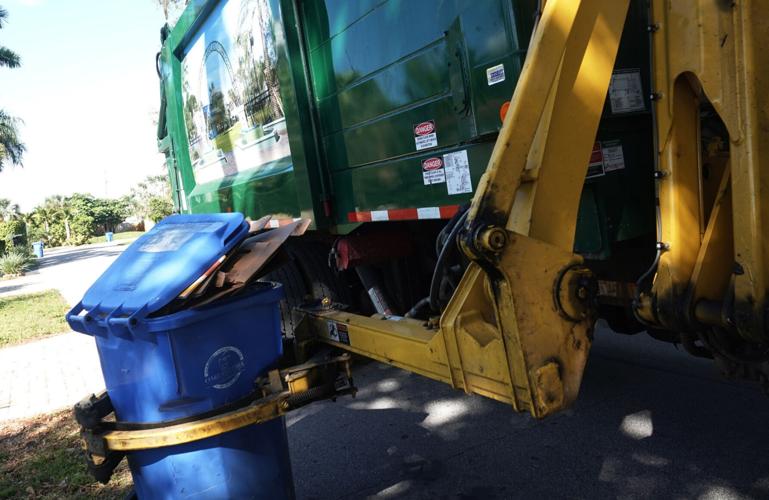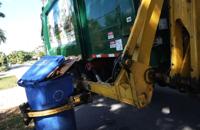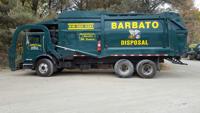Everyone is aware by now of mandates to practice social distancing, hand hygiene and other ways of preventing transmission of the coronavirus, but here’s a possible danger you may not have thought of — spreading the virus through your trash.
Trash disposal was deemed an “essential” service by Gov. Andrew Cuomo when he put strict regulations in place in the battle against COVID-19. But waste-disposal experts say there are risks if garbage is not handled and packaged properly — and that is a concern for them.
Mary Barbato, vice president of marketing and communications for Carmen Barbato, Inc., a waste disposal company serving Greene, Columbia and Berkshire counties, said there are things everyone should be doing to prevent the spread of the coronavirus through the trash.
People who are infected, or may be, are asked to take extra precautions to protect both sanitation workers and the community at large, Barbato said.
“If you have the coronavirus or suspect you do, we ask that you don’t put your garbage out until a week after you have been cleared by your doctor,” she said.
But everyone is asked to take steps to prevent possible transmission, infected or not.
“To keep our drivers and the community safe, we ask that households please make sure they are bagging all garbage so it makes it to its destination, and refrain from overflowing your totes,” said company owner Carmen Barbato Jr. “As we know, the virus remains on household garbage for days, depending on the carrier material. For that reason, together we need to minimize the amount of ‘touch’ our drivers have on garbage.”
When putting your trash together for disposal, you should double bag it and make sure it fits securely in your trash can. There should be no loose garbage, no loose tissues or paper towels included with recyclables, and trash cans should not be overflowing. Drivers will only collect trash that is stored in the tote, Carmen Barbato said.
All recyclables should also be rinsed clean, and all liquids should be emptied before being placed in the garbage. Customers are asked to wear gloves when handling their trash cans, and sanitize them regularly.
“People are not bagging their garbage — there are loose things like tissues and paper towels in with recyclables,” Mary Barbato said. “That is not sanitary, and it doesn’t belong with recyclables. People are overstuffing their totes — please refrain from doing that, and refrain from having extra bags outside the tote.”
Trash bags should be filled, not loose or overfilled. Loose bags are in danger of getting blown over by the wind and then tearing, spreading garbage onto the street or lawn, she said. That’s another reason to double-bag everything.
Studies done on how long the virus can survive on various surfaces differ, but some surfaces can hold the virus for as long as several days, Mary Barbato said.
“There are people on the front lines that are not glamorous, but people need to think about it,” Barbato said. “There is a huge problem with garbage and coronavirus — it’s becoming a big problem that people need to think about before it becomes a bigger problem. That is our concern — we are trying to keep the community safe through educating people about it.”
Robert Van Valkenburg, director of Greene County Solid Waste, said employees at the transfer stations in Greene County do not handle trash directly because it is brought in to the facility by the customers themselves, but workers do use gloves and hand sanitizer, and are directed to wash their hands if exposed to the garbage.
“Most of the garbage that comes in is bagged — we don’t handle it,” Van Valkenburg said. “The customers place it into bins and then it is handled mechanically. We don’t have our employees handling the garbage because there are a lot of other pathogens that could be there anyway — that is normal practice for us, not to touch the garbage.”











